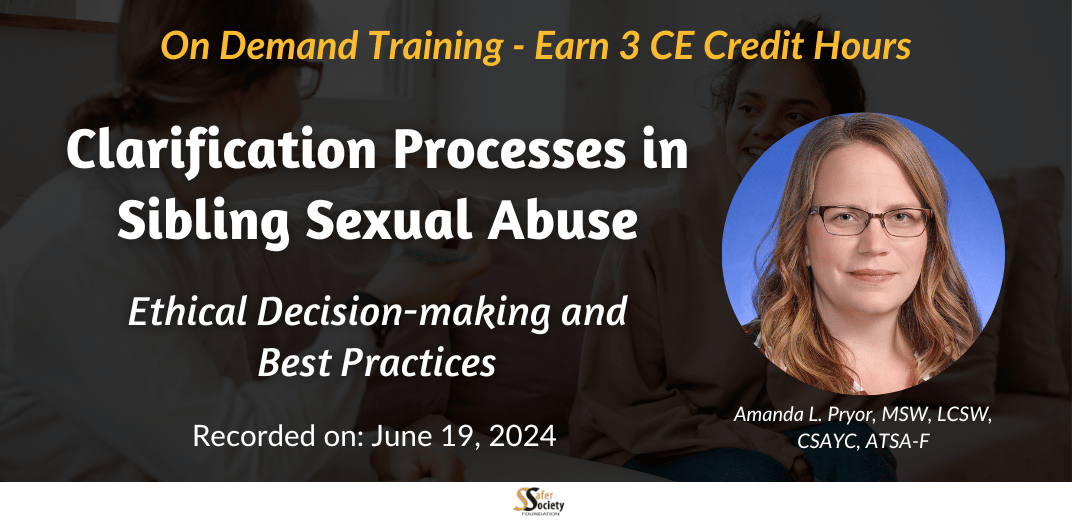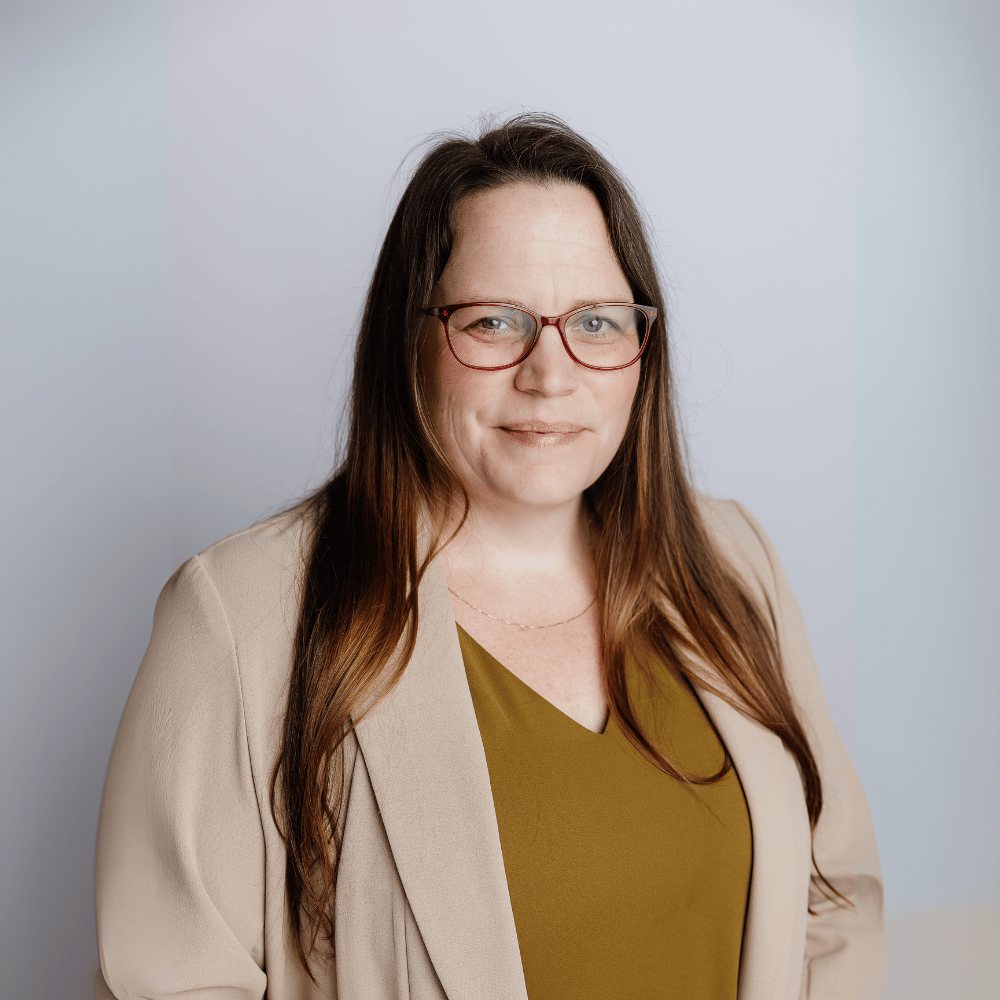
Clarification Processes in Sibling Sexual Abuse: Ethical Decision-making and Best Practices
Already purchased an On Demand training?
Click here to access your Safer Society On-Demand Training Center account.
Clarification involves honesty about abusive behaviors, taking responsibility for them, and building a safer future.
Professionals have long faced the challenge of helping families in the wake of sexual abuse. Practitioners must consider the complex needs of multiple people, including those who have harmed others and been harmed directly and indirectly within the family. Primary considerations include:
- Assisting families in building safety
- Ensuring the rights and welfare of those harmed
- Preventing re-traumatization
- Having the sibling who has abused learn accountability
In this workshop, Amanda Pryor explores these processes and the ethical dilemmas that can arise. She begins by defining clarification and how it is distinct from other related concepts. She examines best practices for all involved, including therapists working with individual clients who have abused, those who have been abused, and often the caregivers themselves. She then reviews common ethical dilemmas (for example, providing best practices when the legal system is reluctant to life a no-contact order, or when one party is denying that harm took place) and offers strategies for resolving them.
1) Describe what clarification processes involve.
2) Explain the components necessary for safe and effective clarification processes.
3) Describe best practices for conducting clarification sessions.
4) Identify solutions to ethical conflicts when they arise within the clarification process.
Audience
This training is primarily for professionals who work with families affected by sibling sexual abuse. This includes social workers, psychologists, counselors, child protective services workers, and juvenile justice professionals.
Content Level
Disclosure
Continuing Education Approval
American Psychological Association (APA)
Safer Society Foundation, Inc. is approved by the American Psychological Association (APA) to sponsor continuing education for psychologists. Safer Society Foundation, Inc. maintains responsibility for this program and its content.
Who's Presenting

Amanda L. Pryor, MSW, LCSW, CSAYC, ATSA-F
Amanda Pryor, MSW, LCSW, CSAYC is a Licensed Clinical Social Worker with over eighteen years of experience. She is a graduate of Indiana University School of Social Work. Her specialty is working with adolescents who have engaged in sexually harmful behavior. She is the Director and is credentialed with IN-AJSOP, Indiana’s Initiative to Advance the Treatment of Sexually Maladaptive Youth. Currently, as the director of IN-AJSOP she provides credentialing services for professionals in field of sexual maladaptive behaviors. Amanda is also the Juvenile Representative on the ATSA Board.
